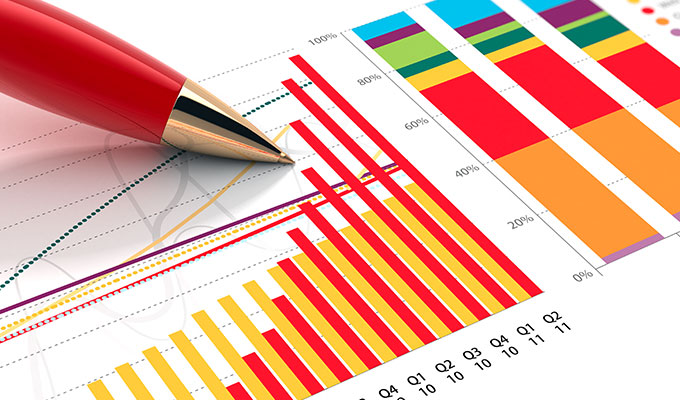At Transworld, we have business valuation experts on staff to help you value your business. We can meet with you and discuss your business' worth value or we can be engaged to perform valuation reports. To get an estimate of what your business is worth using our Free Online Calculator now.
There are several reasons to want to know the value of your company. Call us at (800) 205-7605 and ask for our valuation department. Below is an article written on business value by Andrew Cagnetta, one of our business valuation experts.
How Much Is A Business Worth?
Valuation is the number one question of all of our sellers when contemplating a sale, and of course, the concern of most buyers when purchasing a company. Unfortunately, there is not an easy answer, and, more confusing, there are probably several answers. Why? Because business valuation is an art not a science. Valuations are subject to the appraiser's judgment, skill and quality of methodology. There are several standards of value for businesses, i.e., different values.
- Fair market value - The price at which the property would change hands between a willing buyer and a willing seller when the former is not under any compulsion to buy and the latter is not under any compulsion to sell, both parties having reasonable knowledge of the relevant facts.
- Intrinsic value - Stock values that investors would consider.
- Fair value - Legal standards to value. Often used in divorce.
- Investment value or strategic value - The value to specific buyers. Could exceed fair market value.
Fair Market Value
For our purposes, let's talk about fair market value. Essentially what a buyer would pay for your company in an open market.
Now, remember, this is a simplification of some very intricate valuation practices. There are valuation experts that specialize in providing very complicated reports as part of their business valuation services. Those reports are often used for IRS inquiries, legal proceedings, intricate financing and other reasons. A full valuation of a company could cost $10,000-$30,000. For small business sales, a valuation is usually not needed, and for the most part our simplified valuation methods are sufficient enough to determine your listing and approximate your eventual sale price.
There are three generally accepted approaches to valuing a company:
- The asset approach
- The market approach
- The income approach

Asset Approach
Asset Approach values the assets of your business minus the liabilities. Some of the methods in this approach are book value, excess earnings method, asset accumulation method to name a few. However these values usually mean very little to the market value of most operating businesses. For the most part the asset approach does not properly represent the value of an ongoing business that has positive earnings.

Market Approach
Simply defined, it is much like a real estate comparable method. Like businesses in size and industry sell for similar valuations. There is the guideline publicly traded company method or the merger and acquired company method (private sale databases). There are many databases we can research to find multiples of gross sales and earnings to compare to your business. This method can be very reliable in most cases and is a strong indicator of value.

Income Approach
Your business is worth the present value of the income stream it will bring to an investor. There are several complicated methods including the discounted future earnings method as well as several capitalization methods. This approach is also a strong indicator of what a business with positive income is worth. These methods rely on future projections and growth rates to decide what the business may be worth. If that is true then why do most people multiply or capitalize historical earnings to arrive at a value? Because the assumption is the buyer will maintain the current income levels and they are a reasonable indication of future earnings.
Multiple Of Your Past Earnings
Whew? What does all that mean? Simple. Your business is worth a multiple of your past earnings if a buyer can project those earnings will be maintained after the purchase.
-
What Is The Multiple?
Well first we must discuss what you want to multiply? Net income? EBITDA? Owner's benefit? In small business sales (businesses earning less than 1 million dollars), we use owner's benefit. Owner's benefit equals the net income, plus depreciation, interest, and the owner's salary and fringe benefits. In other words, all the income available to ONE owner if the company was debt free. EBITDA is used by larger businesses and includes normalized salary and benefit package for an executive to operate your business.
-
Okay, Now The Multiples.
Well the multiples of owner benefit can run from less than one to about three. If your company is larger and your EBITDA is near or above one million, the multiples can run from four to six. Is this set in stone? NO! How do you know which multiple would be used for your business? Well, the multiple will rise along with the size, quality, and verifiability of your owners benefit. Bad books, dim future, negative growth and little profits equal a low multiple. Excellent books, bright future, excellent growth you will garner a high multiple.
Can all that mean nothing? Yes!
Buyers determine a business' eventual sale price. Not valuation experts. That is why no one can tell you exactly what your business is worth. Not your banker, CPA, lawyer, advisor, or mother-in-law. The only individual that will tell you what it is worth is the eventual buyer - and that will be a subjective evaluation. The same business will be valued differently by every buyer.
Lost Yet? Here's A Summary Of Business Valuation.
Your business is worth the following:
-
A multiple of earnings compared to like businesses (gross sales or owners benefit times an industry multiple).
-
A capitalization of the net profit (Not Owners Benefit...you cannot capitalize owners benefit!) 20% to 50% or a simple multiple of owner benefit.
-
And if your business makes little or no money- Asset value is the only value. (Goodwill + Inventory + Equipment +etc.) Either sold as a whole or liquidated over time.
How Do You Narrow The Value Down?
Call a specialist. Call Transworld!
Remember, many other things can affect the value of your company. Location, size, competition, growth rates, industry trends, quality of books, ease of transfer, control issues, time you have to sell, terms of the sale, leverage, what business advisor you hire.
Once again, this is an over simplification of a very complicated subject. If you need a valuation, you should consult Transworld, a valuation specialist, or someone familiar with business sales. Now that you know how businesses are valued, perhaps you can concentrate on increasing profits and your eventual profit in your business sale.